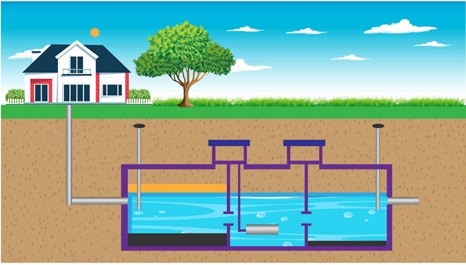
Proper maintenance and operation of domestic sewage plants are critical for ensuring the efficient treatment of wastewater and protecting the environment. This article delves into the dos and don’ts of managing a domestic sewage plant effectively. By understanding the importance of regular maintenance, following best practices for operations, and complying with environmental regulations, plant operators can minimize risks, prevent common mistakes, and enhance the overall performance of the facility. Additionally, strategies for odor control, monitoring procedures, and staff training are highlighted to provide comprehensive guidance for maintaining a sustainable and safe sewage treatment system.
Maintaining your domestic sewage plant is like giving it a spa day – it keeps everything flowing smoothly and prevents any messy surprises. Neglecting maintenance is like ignoring your car’s check engine light – things may seem fine now, but disaster is lurking just around the corner.
Regular Inspections and Maintenance Schedules: Treat your sewage plant like your favorite houseplant – check on it regularly and give it the care it needs to thrive. Proper Waste Segregation and Disposal: Think of your sewage plant as a picky eater – feed it only what it likes and avoid any indigestion-inducing treats.
Overloading the System: Your sewage plant may be a champ, but even the Hulk has his limits. Don’t push your plant past its breaking point – nobody wants a messy meltdown. Disposal of Harmful Chemicals: Dumping harmful chemicals into your sewage plant is like inviting the neighborhood troublemaker to a tea party – it may seem fun at first, but the aftermath is never pretty.
Regulatory Standards and Compliance Requirements: Staying on the right side of regulations is like following a recipe – straying too far can lead to disaster. Implementation of Sustainable Practices: Embracing sustainable practices is like planting a tree – it may start small, but it can grow into something beautiful for your environment and future generations.Best Practices for Odor Control
If your domestic sewage plant is starting to smell like a frat house after a party, it’s time to up your odor control game. Effective odor control can make a world of difference in keeping your plant from becoming the neighborhood nose-pincher. Here are some tips to keep things smelling as fresh as a daisy:
You can read the UK Regulations Here
Invest in regular odor detection assessments to catch those funky smells early. Implement mitigation strategies like covering tanks and using odor-neutralizing agents to keep things pleasant for both your plant workers and the nosy neighbors.
Just like you wouldn’t skip brushing your teeth before a hot date, regularly monitoring and testing your sewage plant is essential to keep it running smoothly and odor-free. Dive into these procedures to keep things in check:
Get up close and personal with your sewage samples to ensure everything is running like a well-oiled machine. Regular sampling and analysis protocols can help catch any issues before they turn into a stinky situation.
Equip your plant with the latest monitoring gadgets to stay ahead of any odor surprises. From gas detectors to air quality monitors, utilizing monitoring equipment can help you nip any odor problems in the bud.
When it comes to running a sewage plant, it’s not just about keeping things odor-free—it’s also about keeping your staff safe and sound. Here’s how to ensure your team is on top of their game:
Give your plant operators the tools they need to sniff out any potential issues and tackle them head-on. Training programs can help your team be proactive in maintaining a clean and safe working environment.
Have a safety net in place for when things go down the drain. Establishing safety measures and emergency response plans can ensure that your team is prepared for any smelly surprises that come their way.In conclusion, adhering to the dos and avoiding the don’ts in operating a domestic sewage plant is crucial for its longevity, efficiency, and environmental impact. By prioritizing proper maintenance, implementing best practices, and ensuring compliance with regulations, sewage plant operators can contribute to a cleaner and healthier ecosystem. With a focus on continuous improvement and adherence to safety protocols, domestic sewage plants can effectively fulfill their role in wastewater treatment while minimizing negative consequences on the environment.
Contact our team of experts today. Our offices are open 6am to midnight 7 days a week.